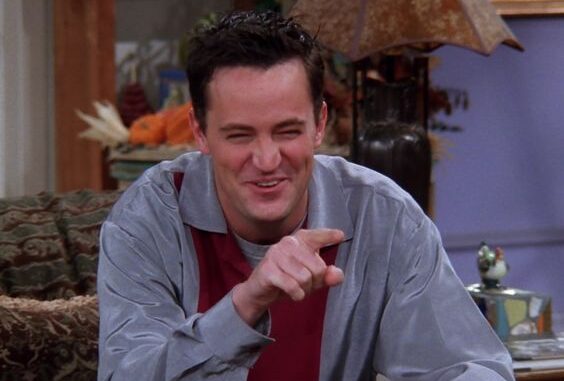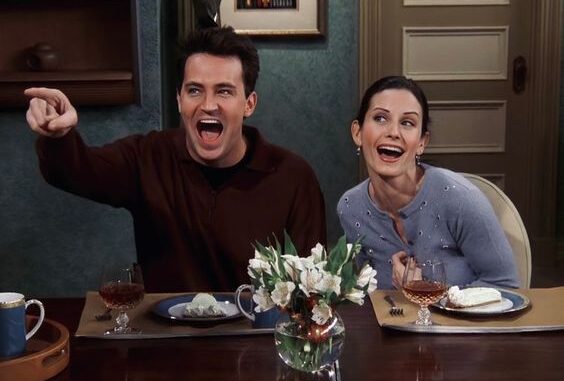

As an actor, Matthew Perry was nominated for four Emmys. He was a regular in the generation-defining ensemble smash Friends and, as a guest star, seamlessly integrated into the spectacular ensemble on shows like The West Wing and The Good Wife.
The show that best understood Perry’s sensibility and, more than that, the essence of what he projected best onscreen may not have been one of his signature successes, and may not be one of the first half-dozen shows that heartbroken fans look back on as we reflect on Perry, who died this weekend at 54. Empirically, it wasn’t a success at all.Go On ran for 22 episodes on NBC between 2012 and 2013 and was canceled after that lone season. It has fans — any show with an ensemble that included Tyler James Williams, Laura Benanti, Brett Gelman, Sarah Baker, John Cho and more is going to find fans — but only a small audience. It’s been hard to find streaming, though I think it’s on Roku at the moment, so check it out.

Go On was, especially for broadcast television, a brave show. And it was definitely a brave performance for an actor who, after the phenomenon that was Friends, clearly enjoyed testing how far he could take the built-in audience whose affection he brought to each new role.
In Go On, Perry played a sports talk radio host grieving the death of his wife. Eager to avoid his feelings, the character returns to work too soon and, after a meltdown, begins to find his way to a new normal with the help of a support group, each member damaged in their own way. With Go On, Perry brought all the sublimated pain and sadness and insecurity that functioned as undercurrents in previous roles and inverted the archetype.

In many of his earlier performances, Perry gravitated toward characters who used humor as a defense mechanism and, for the most part, those characters succeeded. Sometimes they succeeded so rousingly that most viewers didn’t even recognize that the sarcasm and snark were masking anything at all. In his post-Friends roles, though, Perry gravitated toward parts that weren’t sarcastic, but were cynical and even nihilistic, characters trying to find their way back to something as light as “sarcasm.” Viewers could happily pretend Chandler Bing on Friends was a happy guy, except for the moments he wasn’t, but you couldn’t say the same about Matt Albie on Studio 60 on the Sunset Strip or Ben on Mr. Sunshine, who were maybe 50-50 between “hurt” and “funny” and were all the more complicated for that.

But in Go On, Perry played a man who everybody thought of as funny, who everybody treated as entertaining, who remembered HIMSELF as funny and entertaining, but somehow couldn’t find his way back, who wondered if he would ever be that person again. The show had broad supporting characters and ample doses of wacky comic relief, but there were episodes in which Perry’s Ryan King just wasn’t amusing at all, because he couldn’t be. He was prickly and antisocial and struggling in a way that would have been right in the tonal wheelhouse of countless prestige cable shows, and if Go On had been on cable, it might have had a robust three-to-five-season run and it might have added to Perry’s Emmy nomination haul. He was that good. It was that right for his strengths and maybe that’s why it wasn’t right for mainstream viewers.

